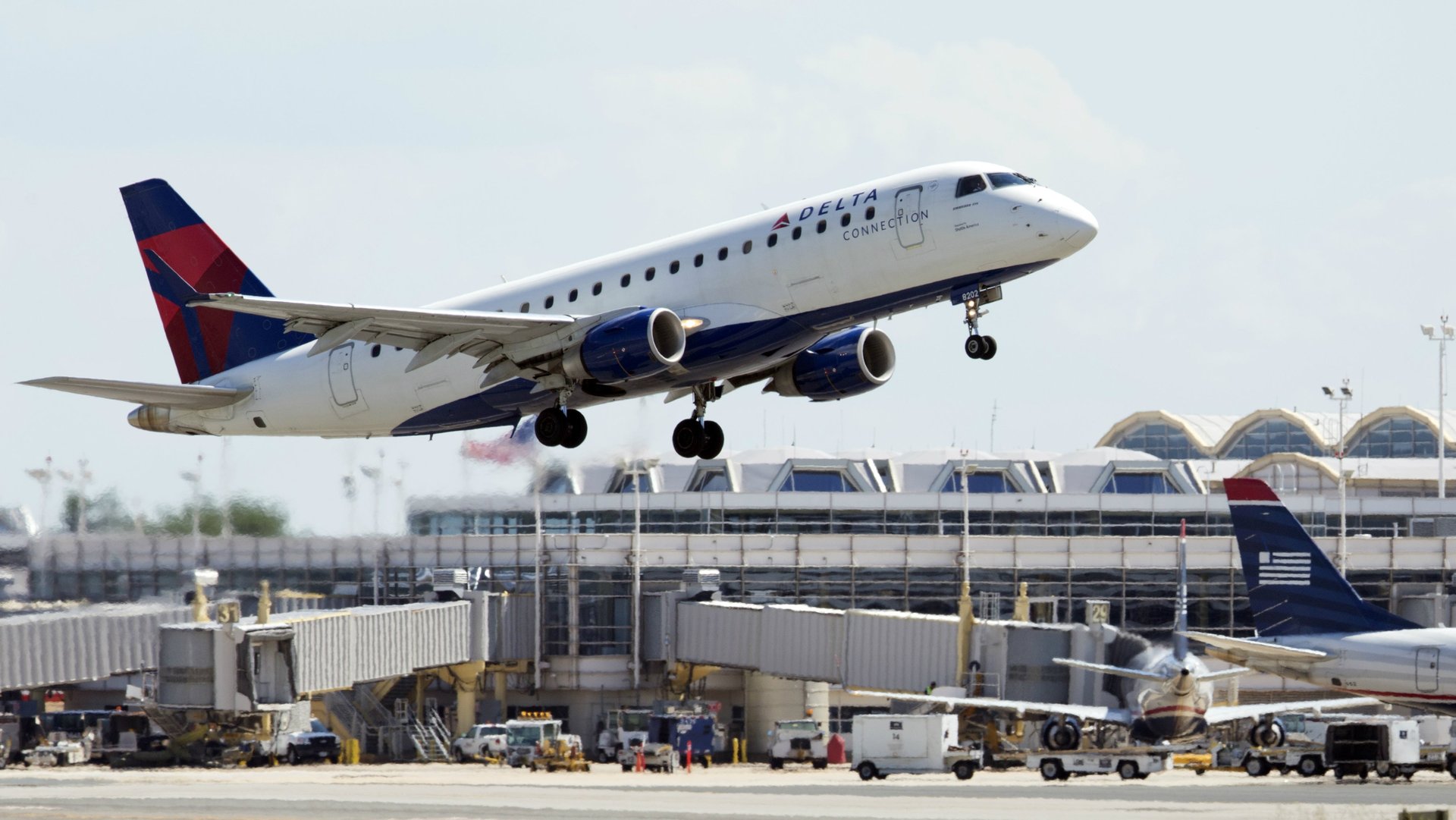Delta’s CEO is wrong about Ebola
This post has been updated to include a response from a Delta spokesman.


This post has been updated to include a response from a Delta spokesman.
You actually can catch the Ebola virus on an airplane, contrary to the advice of the airline Delta’s chief executive.
Though the virus isn’t airborne, Ebola spreads through direct contact with blood, sweat, saliva and other bodily fluids, according to the Centers for Disease Prevention and Control. That means direct physical contact with someone who shows symptoms puts you at risk—whether that contact happens on land or in the air.
Still, the science didn’t stop Richard Anderson, Delta’s CEO, from telling securities analysts and reporters on a call Tuesday to discuss the company’s earnings: “I think what’s worth noting is you really can’t catch Ebola on an airplane.”
Someone should tell the US Centers for Disease Control, which is contacting passengers who flew Monday to Dallas from Cleveland aboard a Frontier Airlines flight alongside a healthcare worker who on Tuesday tested positive for Ebola. The CDC released guidelines on infection control on planes, and on how to deal with sick passengers.
Update Oct. 16, 3:40pm: Anderson “was paraphrasing what experts continue to tell Delta,” a company spokesman writes in an email to Quartz.
At issue is more than spin. Besides a death toll that has hit nearly 5,000 already, the World Bank forecasts an economic loss of nearly $33 billion in West Africa alone if the Ebola outbreak spreads from its current epicenter in Liberia, Sierra Leone and Guinea to neighboring countries.
Aside from the dire consequences for human health, failure to contain the outbreak has the potential to halt travel, and with it the global economy.
For his part, Anderson played down the effect of Ebola on Delta’s business thus far. “We monitor it on a daily basis and we have not seen any changes in the booking trends,” he said.
As for airline staff scheduled to work on flights that land in West Africa “We’re not seeing any pilots or flight attendants who are bidding off,” Joanne Smith, Delta’s head of human resources said.